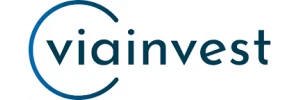Varo Bank: A Fully Digital Financial Institution in the United States
Varo Bank, N.A., stands as a significant innovation in the American financial landscape, being the first fully digital national bank. Chartered by the Office of the Comptroller of the Currency (OCC) and with deposits insured by the Federal Deposit Insurance Corporation (FDIC), Varo operates without a single physical branch. Its entire service delivery model is centered on its intuitive mobile application and responsive website, making banking accessible directly from a smartphone or computer.
Founded in 2015 in San Francisco, California, by a team including Colin Walsh, Assaf Guery, Mykola Klymenko, and Roger Van Duinen, Varo launched its initial mobile application in 2017. A pivotal moment for the company occurred in December 2020 when it secured its national bank charter from the OCC, following FDIC approval earlier that year in February. This achievement allowed Varo to transition from operating with a partner bank to becoming a fully independent financial institution. This independence grants Varo greater control over its product development and regulatory compliance, directly benefiting its customers.
Varo's business model is that of a neobank, primarily targeting younger, tech-savvy consumers and, crucially, the underbanked population within the United States. Its core offering emphasizes fee-free checking and savings accounts, aiming to remove common barriers to traditional banking. The company's ownership structure is backed by substantial private equity investments from firms such as Warburg Pincus and The Rise Fund, reflecting confidence in its digital-first approach and growth potential. Varo has successfully raised over $1.07 billion across multiple funding rounds, including a recent $29 million Series G in February 2025, demonstrating ongoing investor support. Leadership transitioned in November 2024, with Gavin Michael, formerly of Bakkt, Citi, and JPMorgan Chase, taking over as Chief Executive Officer from founder Colin Walsh.
Varo's Lending Products and Associated Costs for American Consumers
Varo Bank offers a focused suite of credit products designed to meet various financial needs, particularly for those seeking alternatives to traditional banking. Understanding the details of these products, including their fees and terms, is crucial for potential borrowers in the United States.
Varo Advance (Small-Dollar Loan)
The Varo Advance is a small-dollar loan product intended for short-term financial gaps. It allows eligible customers to borrow amounts ranging from $20 to $500. Unlike traditional loans, Varo Advance does not charge interest, late fees, or impact credit scores. Instead, it operates with a simple, flat fee structure. For instance, borrowing smaller amounts might incur a fee of $1.60, while larger advances up to $500 could have a flat fee of $40. The repayment term for Varo Advance is typically up to 30 days. To be eligible, customers generally need to have received at least $1,000 in direct deposits into their Varo account during the preceding month. This product is particularly appealing for those seeking quick, small infusions of cash without the complexities of a credit check or the risk of accumulating interest.
Personal Line of Credit
For slightly larger financial needs, Varo offers a Personal Line of Credit. This product provides access to credit amounts between $600 and $2,000. Similar to Varo Advance, this line of credit employs a flat fee structure rather than traditional interest rates. For example, a $600 line of credit might come with a flat fee of $60, while a $2,000 line of credit could incur a $400 flat fee. Although Varo advertises a 0% APR, it is important for consumers to understand that the flat fee, when amortized over the repayment period, equates to an Annual Percentage Rate (APR) of up to 34.6% on a one-year term. The repayment terms range from 3 to 12 months, structured into fixed monthly payments. A notable benefit is the absence of late payment or prepayment fees, offering flexibility. Furthermore, a customer's credit limit may increase over time with a consistent history of on-time repayments.
Believe Credit-Builder Card
Varo also provides a tool for customers looking to establish or improve their credit profile: the Believe Credit-Builder Card. This is a secured credit card where the credit limit is equal to the amount of money the user deposits into a linked Varo account. This mechanism helps users build credit responsibly by only spending what they have saved, with their payment activity reported to major credit bureaus. The APR and specific fees for the Believe Credit-Builder Card can be variable, and potential users should review the most current terms directly within the Varo app or website.
Savings and Collateral Requirements
Beyond lending, Varo offers competitive savings accounts with an attractive Annual Percentage Yield (APY) of up to 5.00% on balances up to $5,000, and 2.50% on amounts exceeding that threshold. Regarding collateral, Varo Advance does not require specific collateral but relies on the customer's account activity and direct deposit history for eligibility. For the Personal Line of Credit, while no explicit collateral is stated, eligibility is implicitly tied to a customer's overall Varo account activity and credit score, indicating a reliance on internal and external financial data.
Application Process, Mobile Experience, and Regulatory Standing
Accessing Varo's financial services, from opening an account to applying for credit, is designed to be streamlined and digital-first. Its commitment to regulatory compliance and a robust mobile experience underpins its operational integrity.
Application Process and Requirements
Customers can initiate their Varo journey through its dedicated iOS or Android mobile applications or via the responsive website. The initial onboarding process involves standard Know Your Customer (KYC) protocols, requiring identity verification through a government-issued ID and a selfie, alongside income and deposit verification. For credit products, Varo utilizes a proprietary underwriting model. This sophisticated system combines traditional credit bureau data with a comprehensive analysis of the applicant's Varo account activity, including direct deposit patterns, average balances, and repayment history from other Varo products. This allows Varo to assess creditworthiness beyond conventional scores, potentially benefiting those with limited credit histories. Applications for credit typically involve a pre-approval check within the app, which usually constitutes a soft credit inquiry, meaning it does not negatively impact the applicant's credit score. Upon approval, funds are disbursed instantly via ACH transfer directly into the customer's Varo account.
Mobile App Features and User Experience
The Varo mobile app is central to its customer experience, available on iOS 11+ and Android 6.0+ devices. It boasts strong user ratings, with approximately 4.5 stars on the Apple App Store and 4.3 stars on Google Play, indicating a generally positive reception. Users frequently praise the app's intuitive interface, the convenience of early direct deposit, and the overall fee-free banking experience. The app allows for seamless account management, including tracking spending, managing savings, applying for credit, and setting up automatic payments. However, some customer reviews cite concerns about the effective APR on the Personal Line of Credit, which can be perceived as high despite the flat fee structure, and occasional reports of temporary account holds, which can cause inconvenience. These points highlight areas where user expectations or clarity could be further enhanced.
Regulatory Status and Licensing
Varo Bank's status as a nationally chartered bank by the OCC and its FDIC insurance on deposits are critical pillars of its trustworthiness and stability in the American financial system. This means it operates under stringent federal banking regulations, including the Bank Secrecy Act (BSA) for anti-money laundering, and provisions of the Dodd-Frank Act. Furthermore, as a lender, Varo complies with consumer protection guidelines, such as those related to small-dollar lending under Section 1071 of the Dodd-Frank Act, ensuring transparent fee disclosures and fair practices. Varo actively promotes its consumer-friendly policies, such as the absence of overdraft fees or minimum balance requirements. It is worth noting that in 2021, Varo addressed past regulatory issues related to account-closure errors, which resulted in customer reimbursements and goodwill credits, demonstrating its commitment to rectifying service shortcomings and maintaining regulatory compliance.
Varo's Market Position, Competitors, and Customer Feedback
Varo Bank operates within an increasingly crowded digital banking and lending market in the United States. Its unique position as a fully chartered national digital bank sets it apart, yet it faces robust competition from both established players and other fintech innovators.
Market Position and Differentiation
Currently, Varo holds a relatively small share, less than 2%, of the total digital banking market by deposits in the US. However, its growth trajectory and strategic differentiators are noteworthy. Varo's primary advantage is its full national bank charter, which means it does not need to rely on a partner bank to offer FDIC-insured accounts and banking services. This grants it greater flexibility and regulatory stability compared to many challenger banks. Key differentiators also include its commitment to fee-free core banking services, a highly competitive savings APY (up to 5.00% on eligible balances), and its straightforward, transparent credit products. The company has pursued an aggressive growth strategy through product expansion, such as the introduction of the Personal Line of Credit and the Credit-Builder Card, strategic partnerships (e.g., with Temenos for cloud banking), and targeted marketing efforts aimed at underserved demographics.
Competitor Landscape
Varo competes directly with other prominent digital-only banks and financial technology companies. Its main rivals in the digital banking space include:
- Chime: Another popular neobank known for early direct deposits and fee-free banking, often catering to a similar demographic.
- Ally Bank: A well-established online bank offering a broader range of products, including mortgages and investment services, typically appealing to a slightly more affluent digital-savvy customer.
- Traditional Banks’ Digital Arms: Major banks like Chase, Bank of America, and Wells Fargo have significantly enhanced their digital offerings, leveraging their extensive customer bases and brand recognition.
Customer Reviews and Feedback
Customer feedback for Varo is generally positive, especially regarding its core banking features. Users frequently praise the fee-free structure, the convenience of receiving direct deposits up to two days early, and the attractive high APY offered on savings accounts. These aspects contribute significantly to Varo's mission of providing accessible and beneficial financial tools. However, common complaints often revolve around the effective cost of the Personal Line of Credit, where the flat fees can translate into a high effective APR, which some customers might find less transparent than traditional interest rates. Occasional reports of account holds or temporary restrictions also emerge, which can be frustrating for users needing immediate access to funds. While specific Net Promoter Score (NPS) data is unverified, available reviews suggest an NPS score around 30, indicating a solid base of satisfied customers with room for improvement in specific areas.
Practical Advice for Potential Borrowers Considering Varo
For individuals in the United States considering Varo for their banking and lending needs, understanding its unique offerings and how they align with personal financial goals is key. As a financial expert, here is some practical advice to help you make an informed decision:
1. Understand the True Cost of Credit: While Varo Advance offers flat fees and no interest, and the Personal Line of Credit advertises 0% APR, it is crucial to recognize that the flat fees translate into an equivalent APR. For the Personal Line of Credit, this can be as high as 34.6%. Always calculate what percentage of the loan amount the fee represents and compare it to traditional loan APRs to fully grasp the cost of borrowing. Use the Varo Advance for very short-term, small financial needs where the flat fee is manageable for your budget.
2. Leverage Fee-Free Banking and High APY Savings: Varo's core strength lies in its fee-free checking and competitive savings account APY (up to 5.00% on balances up to $5,000). Maximize these benefits by directing your primary direct deposits to Varo and utilizing its savings features to grow your money without incurring monthly maintenance fees, overdraft fees, or minimum balance requirements common with traditional banks.
3. Maintain Consistent Direct Deposits for Eligibility: For products like Varo Advance, eligibility is tied to receiving a minimum of $1,000 in direct deposits into your Varo account in the prior month. Ensure consistent direct deposits if you anticipate needing access to these small-dollar loans. This consistency also helps Varo's proprietary underwriting model assess your financial stability for other credit products.
4. Use the Believe Credit-Builder Card Responsibly: If you are looking to build or improve your credit score, the Believe Credit-Builder Card is a valuable tool. Since it is secured by your own deposits, it encourages responsible spending. Treat it like a traditional credit card by making small, regular purchases and paying the full balance on time every month. This practice will positively impact your credit history as Varo reports your payment activity to credit bureaus.
5. Monitor Your Account and Repayments Diligently: All repayments for Varo's credit products are typically made via ACH debit from your Varo account. Set up reminders or automatic payments to ensure you never miss a payment, especially for the Personal Line of Credit, as consistent on-time payments can lead to increased credit limits. While Varo Advance has no late fees, timely repayment is still important for continued access.
6. Read All Terms and Conditions Carefully: Before committing to any product, especially credit, thoroughly read all the terms and conditions provided by Varo. Understand the fee schedules, repayment obligations, and any eligibility criteria. If anything is unclear, seek clarification directly from Varo's customer support. This due diligence ensures there are no surprises down the line.
7. Compare Varo with Other Options: While Varo offers compelling features, it is always wise to compare its products and services with those from other digital banks, credit unions, and traditional financial institutions in the United States. Consider your specific financial needs, the total cost of credit, and the overall customer experience before making Varo your primary financial partner or lender.








